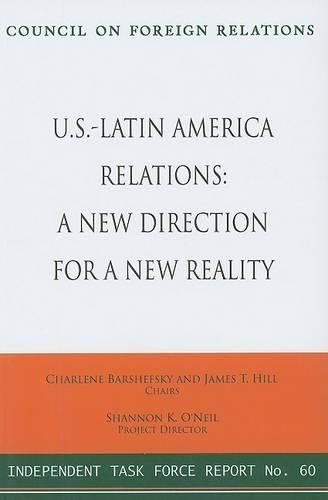
U.S. Policy Toward Latin America
(Paperback)
Publishing Details
U.S. Policy Toward Latin America
By (Author) James T. Hill
Edited by Julia E. Sweid
Council on Foreign Relations
Council on Foreign Relations
18th June 2008
United States
Classifications
Tertiary Education
Non Fiction
327.7308
Physical Properties
Paperback
64
Description
The last time the United States undertook a major shift in its approach toward Latin America was when the cold war ended. It replaced policies to contain communism with ones that emphasized strengthening democracy and liberalizing state-dominated economies through expanding trade. Security concerns shifted too, from neutralizing armed leftist groups and their supporters to containing the threat of illegal drugs. Until recently, these three pillars of U.S. policy - promoting democracy, opening markets, and stemming the flow of cocaine - have remained remarkably consistent and enjoyed largely bipartisan support.Recent developments in Latin America, including a historic transition from military-authoritarian rule to democratic politics, present an opportunity for the United States to again rethink its traditional approach to the region. Led by former U.S. trade representative Charlene Barshefsky and James T. "Tom" Hill, former commander-in-chief of the U.S. Southern Command, the Task Force sets out a series of recommendations for U.S. policy toward Latin America. This report addresses such critical issues as poverty and inequality, the hemisphere's energy potential, human mobility and migration, and security.
Author Bio
Charlene Barshefsky is senior international partner at Wilmer Cutler Pickering Hale and Dorr LLP. James T. Hill is the former commander-in-chief of the U.S. Southern Command.
